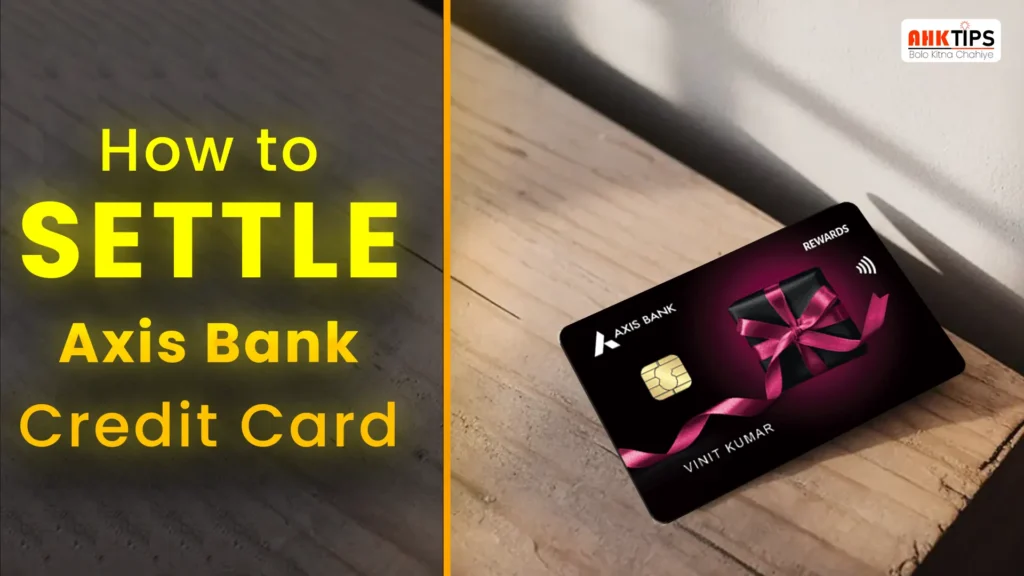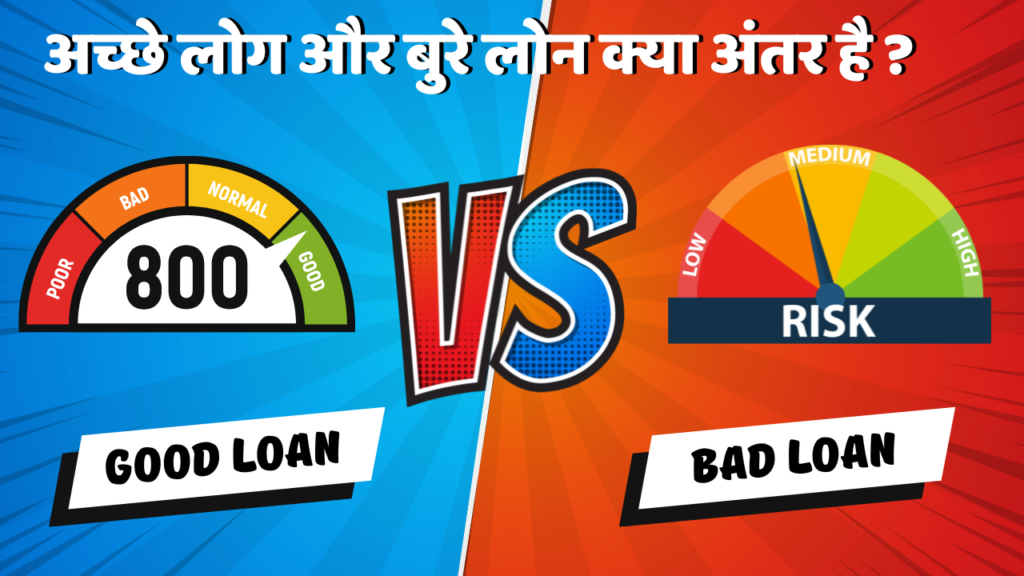Credit cards offer unmatched convenience in today’s fast-paced financial world. However, the ease of swiping a card often leads many into heavy debt, especially if the credit is not managed well. If you’re facing difficulty in repaying your Axis Bank credit card debt and struggling with financial constraints, settling the credit card debt might be an option to consider. However, it’s essential to understand the process, the impact on your credit score, and how to approach Axis Bank for a settlement.
In this comprehensive guide, we will explain how you can settle your Axis Bank credit card debt, the steps involved, and key factors to consider before opting for settlement.
What is Credit Card Settlement?
Credit card settlement refers to the process where a cardholder negotiates with the bank to pay a portion of the total outstanding amount to settle their debt. Axis Bank, like other banks, offers settlement to individuals who are unable to repay their full dues due to financial difficulties. The bank agrees to close the account once the agreed-upon amount is paid, but it marks the account as “settled,” not “paid in full,” which can affect your credit score.
When Should You Consider Credit Card Settlement?
Credit card settlement should be considered only as a last resort, particularly in the following situations:
- Job Loss or Reduction in Income: If you’ve lost your job or experienced a substantial reduction in your income, settlement might be an option to prevent the debt from spiraling.
- Medical Emergency: In cases where medical bills have taken priority over other payments, you might not be able to keep up with your credit card repayments.
- Business Losses: If your business is facing losses and you are unable to manage multiple debts, a settlement can help you close at least one of them.
- Overwhelming Debt: If you’re struggling with multiple loans and high-interest credit cards, settling one or more credit cards can ease your financial burden.
Before opting for settlement, explore other repayment options like EMI conversions, debt consolidation, or balance transfer to avoid damaging your credit score.
Steps to Settle Axis Bank Credit Card
Step 1: Assess Your Financial Situation
Before contacting Axis Bank, take a detailed look at your financial situation. This includes understanding how much you owe, how much you can realistically pay, and how other debts are being managed. Knowing your finances will help you during the negotiation process and give you clarity on what amount you can offer as a settlement.
Step 2: Contact Axis Bank’s Debt Settlement Team
Once you’ve assessed your situation, get in touch with Axis Bank’s customer care or visit a branch to explain your financial difficulties and request a settlement. Axis Bank’s credit card department typically handles such requests through their collections or debt recovery team. You can reach them by calling their helpline or visiting their nearest branch.
Step 3: Submit Proof of Financial Difficulty
To proceed with a settlement, Axis Bank will ask for proof of your financial difficulties. You may need to submit documents like:
- Income proof showing a loss of job or a reduction in salary
- Medical bills showing significant expenses
- Bank statements indicating inability to make payments
- Termination letters or business loss documents for additional proof
Providing accurate documentation will strengthen your case for a settlement and convince the bank of your inability to repay the full amount.
Step 4: Negotiate a Settlement Offer
Once Axis Bank has reviewed your documents, they may propose a settlement amount that is less than your total outstanding balance, usually between 50% to 80% of the amount owed. This can be paid in one lump sum or through a structured payment plan, depending on your financial situation.
Negotiating the terms is crucial. If the settlement amount offered by Axis Bank is too high, try to negotiate a lower figure that aligns with your repayment capability. Be clear about what you can afford, and ask for a reasonable settlement. Remember to get all the terms in writing, including any additional charges or fees.
Step 5: Pay the Settlement Amount and Obtain a No-Dues Certificate
Once you and Axis Bank agree on the settlement amount, you will be required to pay the agreed sum within the stipulated time frame. It’s essential to clear the amount within the specified period to avoid any complications.
After you’ve made the payment, ask for a No-Dues Certificate from Axis Bank. This document confirms that the bank no longer has any claims against you, and it ensures that the account is marked as settled.
Axis Bank’s Credit Card Settlement Policies
Axis Bank follows specific policies for credit card settlements:
- Eligibility: The settlement process usually begins after your account becomes overdue for 90 days or more. However, the exact terms may vary based on your financial condition and bank policies.
- Negotiation Flexibility: Axis Bank typically negotiates the settlement amount based on the total debt, including principal, interest, and late fees.
- Payment Mode: You can usually negotiate for a lump-sum payment, although the bank may offer to spread the payment over a few months.
- Documentation: Make sure all settlement agreements are in writing, including the payment amount, deadlines, and No-Dues Certificate issuance.
Impact of Credit Card Settlement on Credit Score
While settling your credit card debt with Axis Bank can bring immediate relief, it can also have lasting consequences on your credit score:
- Lower Credit Score: A settled account is viewed negatively by credit bureaus, as it indicates that you didn’t pay the full amount. The settlement will be reflected in your credit report for up to 7 years, affecting your creditworthiness.
- Difficulty in Securing Future Loans: Lenders may view you as a high-risk borrower, which could make it harder to get approved for loans or credit cards in the future.
- Higher Interest Rates: Even if you do get approved for new loans or credit, it may come with higher interest rates due to the settlement on your credit report.
Alternatives to Credit Card Settlement
Before opting for credit card settlement, explore these alternatives:
EMI Conversion
EMI conversions allow you to convert your outstanding balance into smaller monthly payments, which can be easier to manage and won’t harm your credit score as much as a settlement would.
Balance Transfer
A balance transfer enables you to transfer your credit card balance from Axis Bank to another bank offering lower interest rates, which can help you manage repayment better.
Debt Consolidation
Through debt consolidation, you can combine multiple debts into a single loan, often at a lower interest rate. This could reduce your monthly payments and help you manage your finances more efficiently.
Conclusion
Settling your Axis Bank credit card debt can offer immediate relief from mounting dues, but it comes with long-term implications for your credit score and financial future. Before you opt for settlement, it’s important to assess your financial situation carefully and explore alternatives such as EMI conversion, balance transfer, or debt consolidation, which may have less impact on your credit score.
If you decide to proceed with the settlement, follow the process carefully—assess your finances, negotiate the terms with Axis Bank, ensure all agreements are in writing, and most importantly, obtain a No-Dues Certificate after payment. While settlement might hurt your credit in the short term, with responsible financial management, you can work toward rebuilding your credit score and achieving long-term financial stability.
Frequently Asked Questions (FAQ’s)
Ans: The settlement amount typically ranges from 50% to 80% of your total outstanding balance. The exact amount will depend on your financial hardship and negotiation with the bank.
Ans: While there is no official settlement fee, the settlement amount may include late fees, interest, and other charges. Be sure to clarify all costs during negotiation.
Ans: The settlement process can take anywhere from 30 to 90 days, depending on how quickly you negotiate the terms and make the agreed payments.
Ans: Axis Bank may allow a structured payment plan, but they typically prefer lump-sum payments to close the account faster. However, this is negotiable.
Ans: Yes, you can rebuild your credit score over time by making timely payments on existing loans, maintaining a low credit utilization ratio, and avoiding any new debt.













